Writes Lubna Shahid
Today the whole world is celebrating International Women’s Day. International Women’s Day (IWD), originally called International Working Women’s Day, and is marked on March 08 every year. In different regions the focus of the celebrations ranges from general celebration of respect, appreciation and love towards women to a celebration for women’s economic, political and social achievements. In this Twentieth Century, we find a lot of restrictions on women. In many cases they cannot even venture out of their homes and are required to restrict themselves to household chores. Very few Muslim women have public role, much less participating in tumultuous events of life. And all this is being done in the name of Islam. However, if we cast a glance on early history of Islam we will find women taking part in various events along with men. The Prophet (PBUH) had from Khadija (RA) four daughters and brought them up as model women participating in the Islamic revolution.
Islam was not only a spiritual but also a social and political revolution. It empowered women and gave them equal rights which were simply unthinkable in those days. Women could play at best a secondary role in any civilization in any part of the world during those times. However, Islam upheld their human dignity and assigned them equal role in all worldly affairs along with men. Many women like Umm ‘Amara even took part in various battles which the Prophet (pbuh) was forced by his enemies to fight. In the Battle of Uhud, Umm ‘Amarah took an attack by sword on her arm and saved the life of the Prophet (PBUH).
Hazrat Fatimah (RA), as all Muslims agree, was one of the five bodies (Panjatan) whom Muslims highly revere and Hazrat Fatima, who was brought up by the Prophet (PBUH) himself in the highest values of Islam, gave birth to Imam Hasan (RA), Imam Husain (RA) along with Hazrat Zainab (RA) who played pivotal role in the aftermath of the Battle of Karbala. Hazrat Shahr Banu (RA), or Shah Zanan, was the daughter of Kisra, the King of Iran who was defeated by Muslims and Hazrat Ali married her to his son Husain (RA).
Hazrat Shah Banu (RA) faced the tragic events of Karbala very bravely and sacrificed her two sons Ali Akbar and Ali Asghar gladly in the way of Allah. It is important to note that when Imam Husain (RA) was leaving Mecca for Kufa (Iraq) in response to the letters he had received from many important citizens of Kufa to lead them in a revolt against Yazid who had usurped Khilafat in violation of the conditions laid down by Imam Hasan (RA) while abdicating in favour of Mu’awiyah, he (Imam Husain (RA)) was advised by many of his well-wishers not to take his family members with him to Kufa and go there alone as people of Kufa may betray him and side with the rulers.
However, despite the foreseen risks, Imam Husain (RA) turned down the advice and took all his family members including women with him. He knew better than his advisors that these women which included his wife, his sister and his daughters, would play very important role, even if he had to fight against Yazid’s forces in or near Kufa. As feared, people of Kufa did betray him including those very people who had invited him to lead them in a fight against Yazid and his counter-revolution.
Yazid stood for all that which was against Islam. Not only his life-style was against that of the Prophet (pbuh) and his companions but he also tried to destroy the institute of khilafah and introduced the reactionary institution of monarchy which was totally against the revolutionary political system introduced by the Imam Hussain (RA) knew. Before he left for Kufah, Imam Husain (RA) knew what was in store and he deliberately took his womenfolk along with him to show to the world that women can also play very important role in saving the Islamic revolution.
And these women did play a very significant role which was no less significant than that of the male companions of the Imam. And Imam was right. These women played very important role, particularly the Imam’s sister Hazrat Zainab (RA). After the martyrdom of the Imam and his colleagues Imam Zainul Abidin and all women and children were arrested and then loaded onto camels with neither saddle nor shade and were moved toward Kufa. As they approached Kufa, its people gathered to see them. Some women of Kufa gathered veils for them upon knowing that they are relatives of Muhammad. Among the captives were Imam Zain-ul Abidin, who was gravely ill,
Hazrat Zainab (RA) pointed at the people to be quiet. Then she addressed the people of Kufa:
“The praise is exclusively attributed to Allah. And greetings to my father (grand father), Muhammad(pbuh), and to his pure and benevolent family. And then, Oh people of Kufa! Oh deceitful and reneger people! Do you weep? So let tears not be dried and let groans not be finished. … Beware, such a bad preparation you have made for yourself that Allah became furious of you and you will be at punishment forever. Do you weep and cry? Yes, by Allah, do weep numerously and do laugh less! Since you brought its shame and fault on yourself and you will not be able to cleanse it forever.”
During the journey from Karbala to Kufa, and from Kufa to Damascus Hazrat Zainab (RA)and Umm-Kulthoom bint Ali(RA), and son Ali ibn Husain gave various speeches that exposed the truth about Yazid and told the Muslim world of the various atrocities committed in Karbala. After being brought to Yazid’s court, Hazrat Zainab (RA) courageously gave a famous speech in which she denounced Yazid’s claim to the caliphate and eulogized Husain’s uprising.
The prisoners were held in Damascus for a year. During this year, some prisoners died of grief, most notably Sukayna Bint Hussain. The people of Damascus began to frequent the prison, and Hazrat Zainab (RA) and Ali ibn Husain used that as an opportunity to further propagate the message of Imam Hussain and explain to the people the reason for Husain’s uprising. As public opinion against Yazid began to foment in Syria and parts of Iraq, Yazid ordered their release and return to Medina, where they continued to tell the world of Husain’s cause.
Syeda Zainab (RA)’s role was exemplary and it very well shows how bold were Muslim women and how they played important roles in consolidating the Islamic revolution. Today despite so much progress and spread of education Muslim women are still suppressed and in some countries even their voice is considered ‘awrah, i.e., their voice should not be heard by outsiders and here Zainab (RA) and other women from Imam’s family were the main speakers publicly.
Hazrat Zainab (RA) was the eldest among those women and was leading the entire family including Imam Zainul Abidin who was then quite sick and unable to play an active role and it was Hazrat Zainab (RA) who had to perform the leadership role and she proved to be more than what was expected of her. Today women have to learn much from Hazrat Zainab (RA) and her leadership. Her public role and oratorical skills have much to learn from.
It is wrong to think, as many Muslim men do, that women are weak by nature and cannot achieve much in public life. Hazrat Zainab (RA)’s public role is very inspiring for Muslim women today and should be an example for those women who feel they are fit only for domestic chores.
Its time to learn lessons from the past Islamic history and fight for the rights and move ahead with courage and satisfaction.
The writer is a journalist from Lucknow university










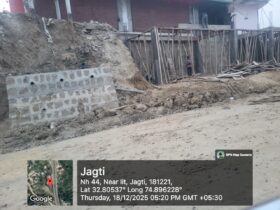

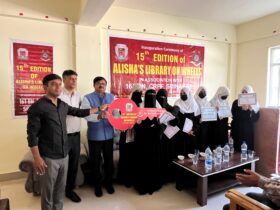
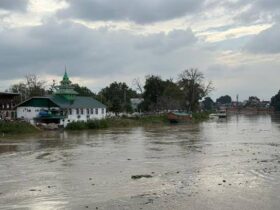
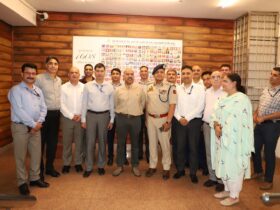
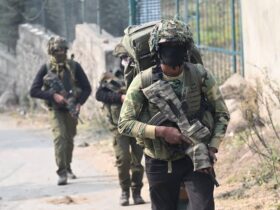

Leave a Reply